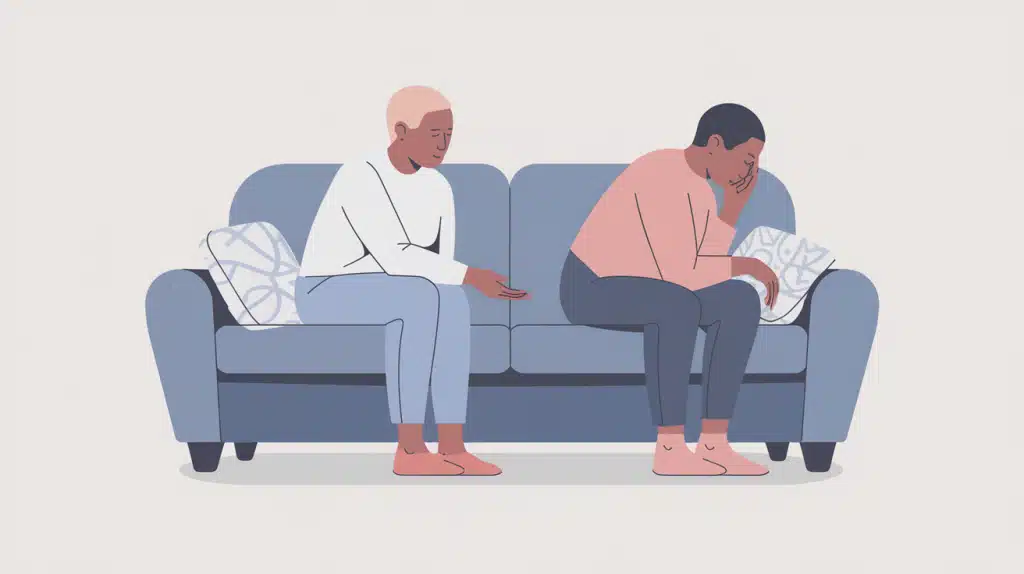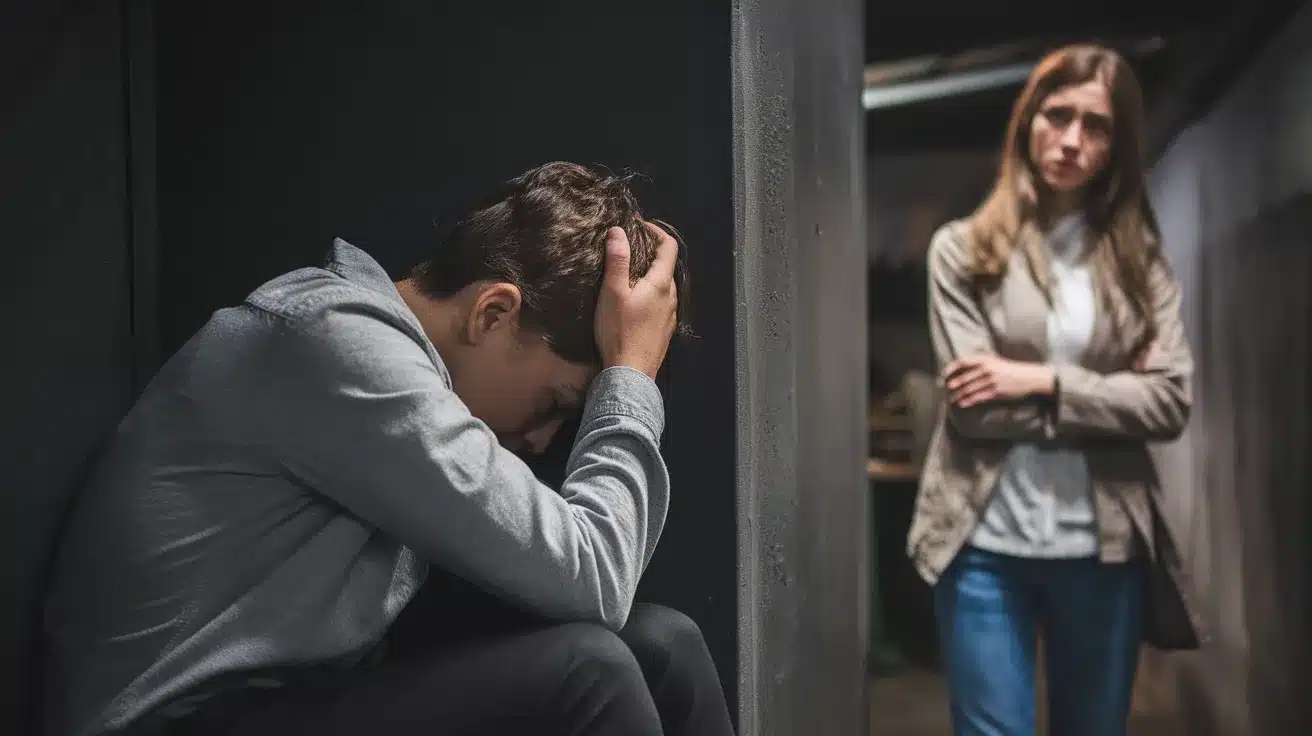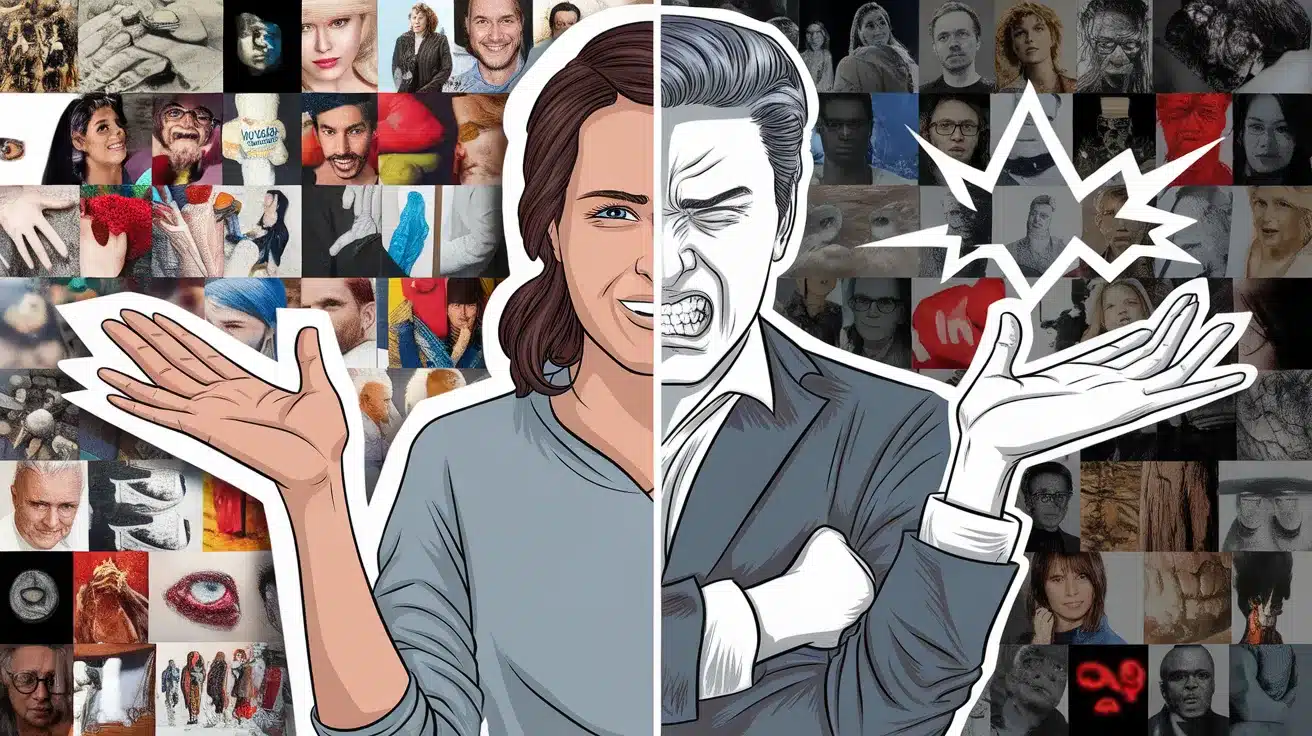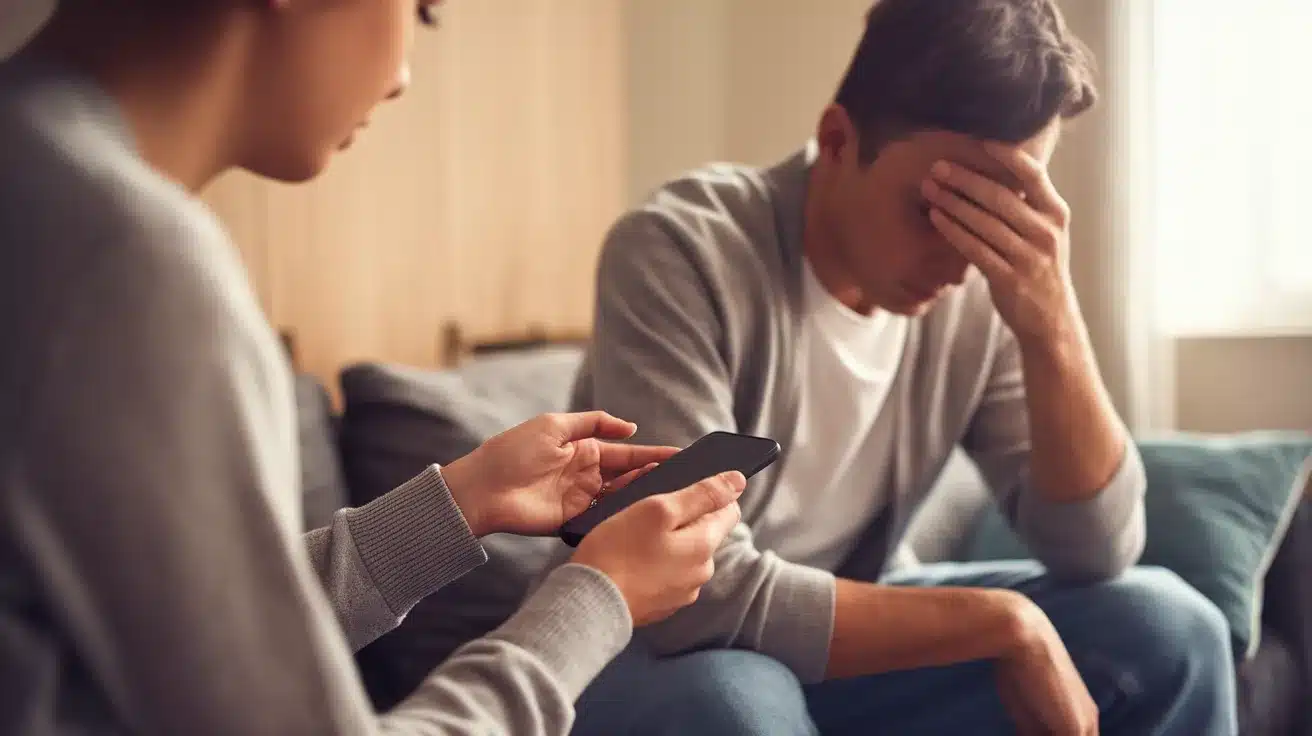Have you ever felt someone with PTSD building walls between you? It hurts when someone you care about keeps you at arm’s length.
You try to help, but they back away. You offer comfort, but they shut down. I’ve seen how this push-pull dance leaves both people feeling lost and alone.
The truth is, this isn’t about you. Their brain is working overtime to protect them from danger, even when no threat exists. When someone has PTSD, pushing others away feels like the safest choice.
I want to show you what they’re feeling and how you can stay close without making things more complicated.
Let’s look at why they pull away and what actually helps.
What Is PTSD and Why Does It Affect Relationships?
PTSD stands for Post-Traumatic Stress Disorder. It often occurs after someone has experienced a traumatic or life-threatening event. Their brain starts working differently to keep them safe.
People with PTSD may have bad memories that pop up without warning. They might feel on edge most of the time. Sometimes they jump at small noises or avoid places that remind them of what happened.
Many folks with PTSD pull away from loved ones. This isn’t because they don’t care. Their brain is stuck in “danger mode” and makes them want to hide or protect themselves. When someone has PTSD, they might seem distant or quick to anger. This makes close bonds hard to keep. They may struggle to feel happy or safe, even with people they trust.
PTSD can make it tough to sleep or focus on daily tasks. This added stress puts strain on all their relationships. Small problems can feel much bigger when someone is already fighting their own thoughts.
With help and support, people with PTSD can learn to manage their symptoms. This makes their relationships better, too.
Why Someone with PTSD Might Push You Away?
People with PTSD often pull away from those who care about them. This happens for real reasons that make sense when you know what’s going on in their minds.
1. They Feel Unsafe, Even When They Are Safe
- Their brain is on high alert all the time.
- Old fears mix with the present moment.
- They may seem fine one minute and scared the next.
2. They Feel Too Much at Once
- Small things can bring back bad memories.
- Their feelings can be too big to handle.
- It’s easier to be alone than to explain what’s happening.
3. They Worry About Being Too Much Work
- They see how their moods affect you.
- They don’t want you to always take care of them.
- Shame makes them hide their struggles.
4. They Find It Hard to Trust Others
- Past hurt makes new trust very hard to build.
- They expect more pain, even from good people.
- Being close means being open to getting hurt again.
When someone with PTSD pulls away, they’re often trying to protect both of you. With time and the right help, many learn to stay close even when fears come up.
What to do When Someone with PTSD Pushes You Away?
When speaking to someone with PTSD, especially when they’re pushing you away, your words can either build a bridge or unintentionally create more distance. Here’s a quick guide to help you choose compassion over conflict.
| Supportive Things to Say | Things That Might Hurt or Trigger |
|---|---|
| “I’m here for you whenever you need.” | “You’re overreacting.” |
| “Take all the time you need.” | “Just get over it already.” |
| “You’re not alone in this.” | “Why can’t you just be normal?” |
| “It’s okay to feel what you’re feeling.” | “This again? We’ve been through this.” |
| “I care about you no matter what.” | “You’re being dramatic.” |
| “Would you like me to just listen?” | “You need to stop thinking about the past.” |
| “It’s okay if you don’t want to talk now.” | “Other people have it worse.” |
Choose your words like you’re handing someone a soft place to land. Validation, patience, and presence go a long way in making someone feel safe enough to stay.
Should You Discuss Getting Help with Them?
Talking about mental health help can be tricky. Your loved one might not be ready to hear it. This doesn’t mean they don’t value your concern.
Their brain may just be telling them that change is risky. Many people find that therapy helps with PTSD. The right words from you could open a door to healing.
1. Don’t Force the Topic
- Mention help once, then give space.
- Let the idea sit with them for a while.
- Pushing too hard often makes people resist more.
2. Show Them Ways to Get Support
- Offer to help search for good therapists.
- Send links to PTSD resources if they’re open to it.
- Suggest options like phone therapy if leaving home is hard.
3. Let Them Move at Their Speed
- Healing can’t be rushed.
- Small steps forward are still progress.
- Trust that they’ll seek help when they’re ready.
The goal isn’t to fix them but to walk beside them. Your patient support means more than you know.
How to Cope with PTSD?
Coping with PTSD isn’t about “getting over it” quickly; it’s about finding ways to feel safer and more in control over time. Everyone’s path looks different, but these steps can make each day a bit easier.
1. Understand Your Triggers
Your body and mind react to things that remind you of past trauma. These “triggers” can be sounds, smells, places, or even certain words. When triggers hit, your brain thinks you’re in danger again, even when you’re safe now. Knowing what triggers your symptoms helps you prepare for these moments or avoid them when necessary.
Tip: Keep a small notebook with you and write down what happened right before you felt bad. Over time, you’ll start to see patterns that help you regain control.
2. Practice Grounding Techniques
When flashbacks or panic hit, your mind gets stuck in the past. Grounding brings you back to now. These simple exercises remind your brain that you’re in the present moment, not back in the scary time. The more you practice, the faster these techniques will work when you need them.
Tip: The 5-4-3-2-1 method works well for many people. Name 5 things you can see, 4 things you can touch, 3 things you can hear, 2 things you can smell, and 1 thing you can taste. This uses all your senses to pull you back to now.
3. Create a Safe Daily Routine
PTSD makes the world feel scary and out of control. A steady routine gives your days structure and helps your brain expect what’s coming next. This cuts down on the “always on alert” feeling that PTSD brings. Simple, regular habits signal to your body that you’re safe.
Tip: Start with morning and bedtime routines first. Even just three steps done in the same order each day (like washing face, brushing teeth, and five minutes of deep breathing) help build a sense of safety.
4. Reach Out for Support
Trauma often makes people pull away from others, but healing happens better with support. Sharing your story with safe people helps you process what happened. Others who understand PTSD can share what worked for them and remind you that you’re not broken or alone.
Tip: Start small if talking feels hard. Text a trusted friend that you’re having a rough day, or join an online PTSD forum where you can just read others’ stories until you feel ready to share.
Conclusion
Loving someone with PTSD means accepting a path with ups and downs. Their pushing away isn’t a sign they don’t care; it’s their brain trying to feel safe again.
Remember that small steps matter. A text message, a shared meal, or sitting quietly together builds the trust that PTSD damages. Your calm presence helps more than perfect words.
When you understand PTSD isn’t about you, you can stop taking their distance so personally. This knowledge frees both of you. If you’re struggling, find your support too. Your well-being matters in this process.
Have you found ways to stay connected with someone who has PTSD? Share your tips in the comments. Your story might help others feel less alone on this same path.
Frequently Asked Questions
Why Does PTSD Make You Isolate?
PTSD makes the brain stay in danger mode. People isolate to avoid triggers, manage overwhelming feelings, and protect themselves from feeling unsafe during social contact.
How Do You End a Ptsd Episode?
To end a PTSD episode: Try deep breathing, name five things you can see, feel cold water on your face, use a comfort item, or say “I’m safe now” out loud.
Why Do People with PTSD Not Like Being Touched?
Touch can trigger flashbacks of trauma. Many with PTSD stay on high alert and feel unsafe when touched without warning.








